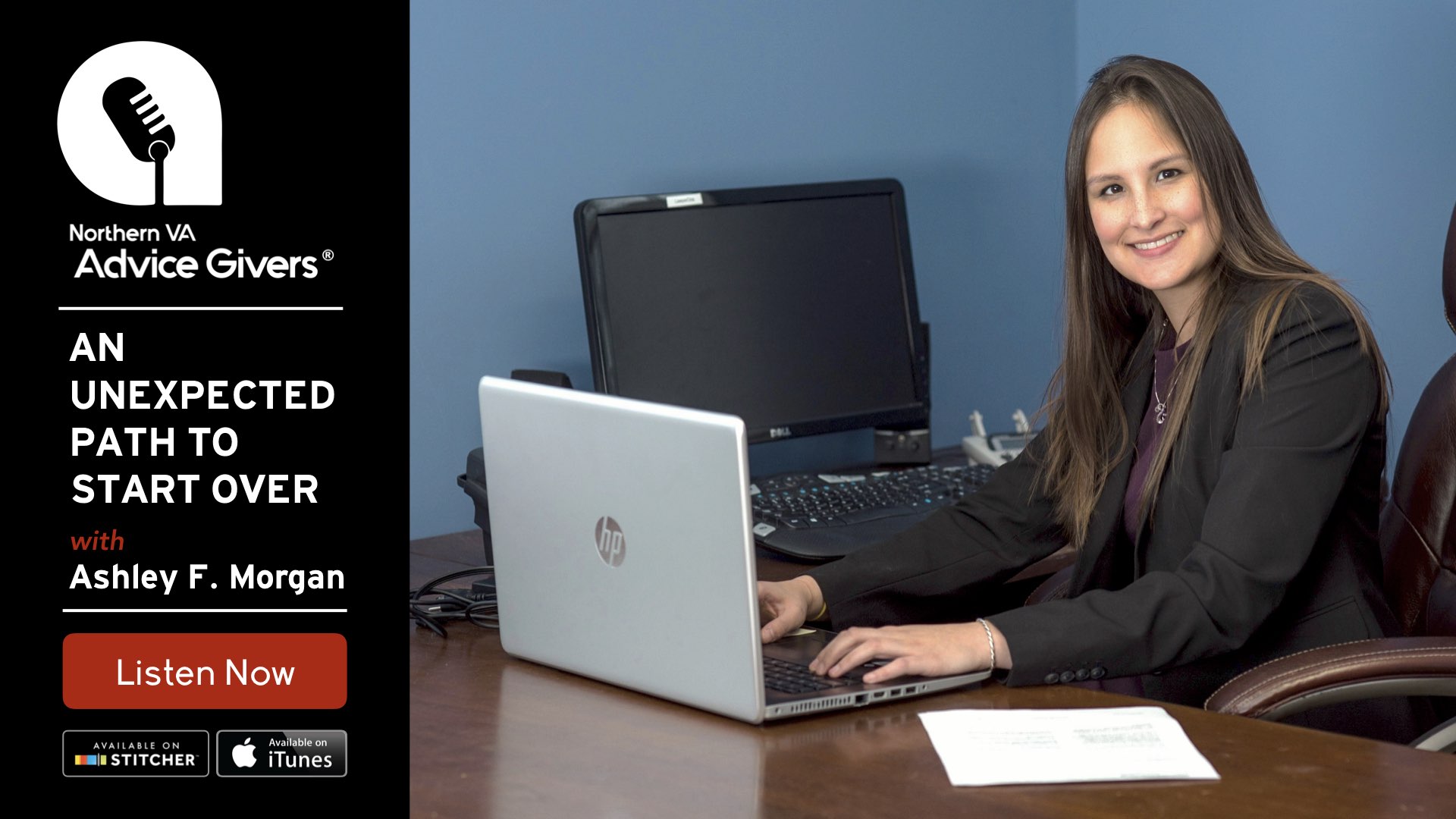 Ashley F. Morgan
Ashley F. Morgan
Ashley Morgan is the founder of Ashley F. Morgan Law, a law firm located in Herndon, VA that is based in the federal sector and primarily deals with bankruptcy, immigration, tax resolution, and setting up and closing down businesses, as well as everything in between. Her firm provides the bilingual services of efficient, personalized attorneys who help clients find a solution to their problems in a judgement-free zone. Ashley F. Morgan Law prides themselves on providing first-rate legal services with commitment to personal integrity and a distinctly human touch.
Ashley originally went to law school with the intention of using that knowledge to run a business outside of law, then discovered her enjoyment for practicing law and decided to be a lawyer after all. “You always hear about lawyers having high pressure jobs,” Ashley reflects on the nature of her career. “Don’t get me wrong, there are days where I’m like, ‘I don’t know what I’m gonna do,’ but then most of the time it’s helping people solve problems and making things happen.” She loves the culmination of ways she has experienced power over helping make positive changes, like funding the construction of hospital buildings.
Misconceptions of Bankruptcy
The firm’s core focus is typically DED issues, particularly bankruptcy and tax resolution, which tend to go hand-in-hand. Ashley assists a range of people in financial trouble; she helps those who are close to not being able to pay their credit card minimums as well as people who are on the brink of foreclosure or garnished wages. She highly recommends getting a free consultation on any financial predicaments sooner rather than later to lessen potential consequences by acting proactively. Ashley prefers when she can “help someone early on and…help them understand it’s not the worst thing you can do. It can actually be better and can be beneficial and get them on the right track.”
Bankruptcy has always had a bad name because on the outside, it makes people look like they really messed up. However, Ashley argues that “too often, it’s stuff that is outside their control.” The market crash in 2008 forced many people into bankruptcy out of sheer circumstance. Bankruptcy does not mean homelessness or the loss of absolutely everything. Quite the contrary, it is a reset button, a relief option that allows people to get back on their feet and start building again.
Exploring Options
Bankruptcy allows for a couple of different income thresholds, which is a determining factor of whether someone should file Chapter 7, Chapter 11, or Chapter 13. Those who are below the parameter for Chapter 7 qualify for full debt forgiveness, with the exception of certain debts like student loans and tax evasion. When a corporation or someone with high income or lots of assets files, they are required to take the means test, which analyzes expenses such as mortgages and car payments to see if they have too much money left over to file Chapter 7. If that is the case, they would have the option of a Chapter 11 or 13, which qualifies them for a customized payment plan that either allows them to pay a very small percentage of their debts back or pay back in full with largely extended due dates.
There are many protections out there to ensure that bankruptcy does not completely destroy a person’s opportunity for financial growth. Ashley notes, for example, that in Virginia, “you can keep a retirement plan with unlimited amounts of money” in addition to certain exemptions for cars and other assets.
“Everyone has an option,” says Ashley. “I’ll be the first to tell you bankruptcy is not the best option for everyone, but I think you need to at least know what your options are when you’re struggling… Maybe you get to a point where it’s like, ‘Okay this is the best option,’ or it’s like ‘Well I have this in the back of my head and it’s my safety net….’ You don’t have to make the decision right away unless you’re being garnished or have a foreclosure against you.” No matter what the situation may be, Ashley recommends gathering as much knowledge about what options people in debt may have long before that debt escalates to the point of lawsuits, garnished wages, or foreclosure.
Approachability in Law
Ashley F. Morgan Law prides themselves on their ability to provide a safe, judgement-free space for clients to thoroughly discuss and approach their problems. “I think a lot of people feel judged when they’re meeting with attorneys,” Ashley says. “And that’s the last thing I want my clients to feel because you know, Congress wrote bankruptcy into the Bankruptcy Code for a reason. It’s a financial legal decision. It’s not a moral decision. It’s not an ethical decision. It’s whether it’s the right financial decision for you.”
Ashley understands that many clients feel ashamed that they are unable to solve their financial problems without seeking legal help. She enjoys making them feel comfortable by “being sympathetic to their situation and understanding shit happens.” Though she maintains a professional demeanor, Ashley finds it easier to help her clients if she can connect with them and get them to open up about their financial struggles.
Reaching Out
Ashley and her team provide free resources and information online in an effort to help people make more informed financial decisions. She has a Facebook page and a YouTube series on setting up and running a business, which can be found by searching for Ashley F. Morgan Law online.



